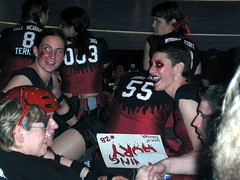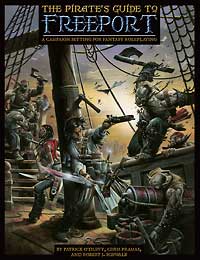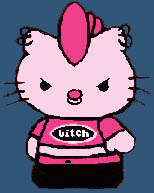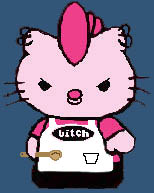Thoughtful discourse is futile
A lot of the discussion around the group seems to be a largely bickering and judgment about who is right and who is wrong in the debate, which commenter is pro-censorship, anti-government, pro-nanny state, anti-free speech, anti-corporation, anti-child, or pro-regulation. I think it would be a lot more productive and instructive to start by acknowledging that people like those in the Campaign for a Commercial-Free Childhood group exist. From there I'd hope we could have a discussion about ways to handle changing community standards and those motivated groups willing to push for legislation that could adversely impact what folks like myself want to do with our products.
Trying to apply some of what's been discussed more directly to the game industry, I would use my own company as an example. Green Ronin will be putting out a new roleplaying game line based on George R.R. Martin's Song of Ice and Fire novel series next year. This novel series is definitely something I'd consider mature in nature. There are a lot of things going on in those books that even I, lax and permissive parent that I am, would object to my 11 year old being exposed to (the incest storyline in particular crosses my "inappropriate" line for her).
So. How does Green Ronin handle the license?
Certainly we're not planning any books for grade schoolers or Happy Meal toy promotions for our products but how about running demo games at the big cons? Even if our demo games stay far, far away from any incest storylines and focus on a much more narrow sliver of the world (the King is holding a festival, or has died without an heir or some other "safe" and relatively PG-rated theme), I think it's still a legitimate question to consider whether we should be "advertising" the IP to kids who we KNOW the full material would be inappropriate for. Do we limit the "clean" product of the demo game by saying it's for teens and up? Do we let anyone play the demo version, knowing that what you're presenting at the con was "safe" (just as the actual Transformers robot toy itself may be physically safe for toddlers) even if the larger product most definitely wouldn't be? Some would not give it a second thought but I've certainly thought about it.
There was a time when it was A-OK to have candy cigarettes or cartoon characters advertising cigarettes during prime time television. Cigarettes are still legal but exposure to them has been restricted because of evidence that they really were harmful and public opinion demanded that change. We're seeing the same thing with advertising sugary cereals and high-fat fast foods. As the public becomes concerned about childhood obesity, they're also changing what is considered acceptable in advertising those products to children. There's enough concern that McDonald's now goes out of its way to have its colorful clown mascot skateboarding, bicycling, and eating yogurt and fruit in the ads aimed at kids, instead of advertising those cheesy burgers and America's Favorite French fries as he did in my youth. Ronald McDonald now has his own website (Ronald.com) which actually says in the upper left corner of the screen, "Hey kids. This is advertising." Other industries are trying to get ahead of this stuff. In contrast, far too much of the so-called discussion that has spawned about it amongst game industry pundits seems to be focused on calling names and declaring their moral superiority and outrage at this would-be attack on their free speech.
There's certainly a lot of concern among the public about exposure to sex and violence, even lacking the dramatic proof of harm cigarettes and high-fat, processed foods are burdened with. I would rather be prudent and consider these issues in advance than defensively respond after the fact to the group or legislation they could spawn.
Labels: corporate responsibility, politics, social contract



















